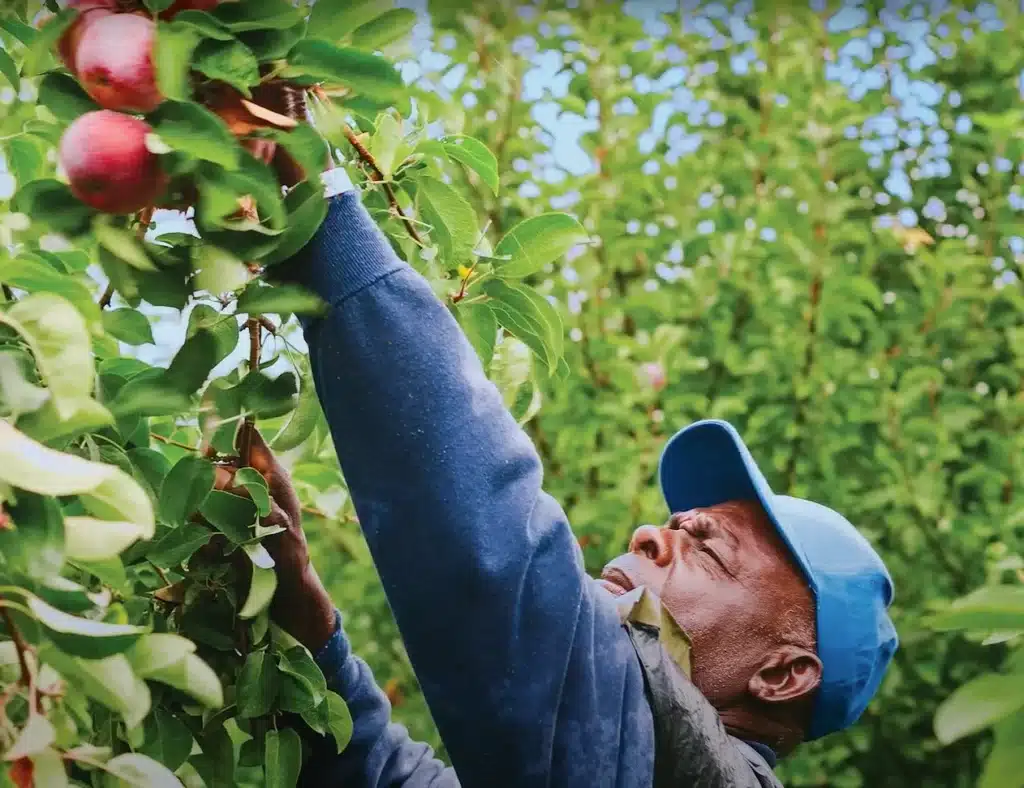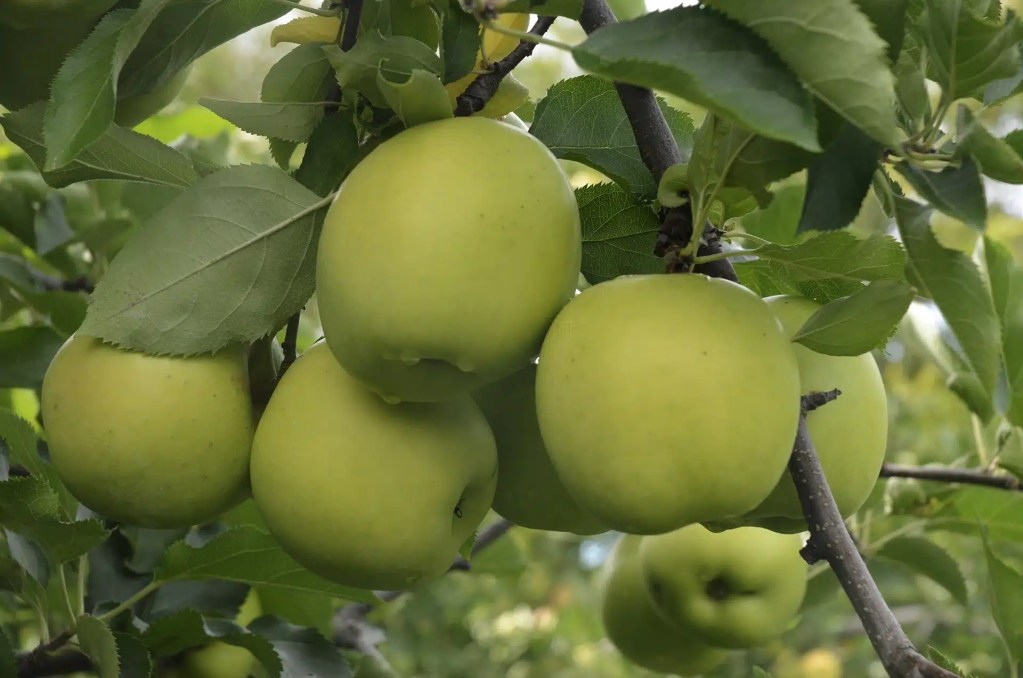Apples are one of our most beloved fruits — we savor them fresh in hand, in all manner of baked goods, salads, sauces, and juice.
The original apple trees grew in the rugged mountains of central Asia, in part of what is now Kazakhstan; their popularity and versatility have helped to spread them all around the world, with diverse strains thriving in many regions.
Apple enthusiasts and researchers have developed many new varieties, and dedicated orchardists have kept many old heirlooms available. Although only a handful of varieties are common in stores these days, there are hundreds of wonderful apples to choose from, including many that were first grown, and show off their best flavor, in the climate and terrain of the Northeast.
Did you know?
Apples have even become a symbol of health, and for good reason! They’re full of fiber, vitamin C, and all sorts of good stuff that keeps us feeling our best. Did you know that they’re also packed with antioxidants, which help protect our cells from damage? Plus, that satisfying crunch is good for our teeth and gums.

Popular Apple Varieties
While there are thousands of apple varieties grown around the world, a select few have achieved mainstream popularity. These are the apples that consistently appear in grocery stores and farmers’ markets, appealing to a broad range of tastes and culinary needs.
Gala
Originally from New Zealand, the Gala apple has gained international recognition for its sweet and pleasantly mild flavor, coupled with a satisfyingly crisp and juicy texture. Its visually appealing skin displays a blend of yellow and red, often adorned with orange stripes. The Gala’s versatility is a key factor in its popularity, as it can be enjoyed fresh, added to salads for a touch of sweetness, or incorporated into baked goods such as pies and tarts.
Honeycrisp
Developed in Minnesota, the Honeycrisp has rapidly become a consumer favorite due to its exceptionally sweet flavor and remarkably crisp texture. Its visually distinctive mottled red skin and juicy flesh make it a delightful snacking apple. Furthermore, its ability to retain its texture and flavor even after being cooked makes it a popular choice for baking applications, including pies, sauces, and apple butter.
Golden Delicious
A longstanding classic, the Golden Delicious apple is cherished for its sweet, mellow flavor and smooth, yellow skin. Its versatility in the kitchen is truly noteworthy, as it complements both sweet and savory dishes. Whether eaten fresh, baked into a pie, or used as an ingredient in sauces and salads, the Golden Delicious consistently provides a satisfying culinary experience.
Ambrosia
Discovered in Canada in the 1990s, the Ambrosia apple has quickly gained popularity for its honeyed sweetness and crisp, juicy texture. Its creamy white flesh and attractive pink blush make it visually appealing, while its flavor profile makes it an excellent choice for fresh eating, salads, and desserts.
Fuji
A product of Japanese breeding, the Fuji apple is a cross between the Red Delicious and Ralls Janet varieties. It is prized for its sweetness, firmness, and impressive storage life. Its skin exhibits a pleasing blend of red and yellow, and its crisp, juicy flesh provides a satisfying crunch. While excellent for fresh consumption, the Fuji apple also holds its shape well when cooked, making it suitable for pies and other baked goods.
McIntosh
A true North American staple, the McIntosh apple has been enjoyed since its discovery in Canada in the early 19th century. Its tender, juicy flesh and tart flavor make it a popular choice for eating fresh, while its unique texture also lends itself well to applesauce and cider production. The McIntosh’s bright red skin and white flesh evoke a classic image of autumnal abundance.


